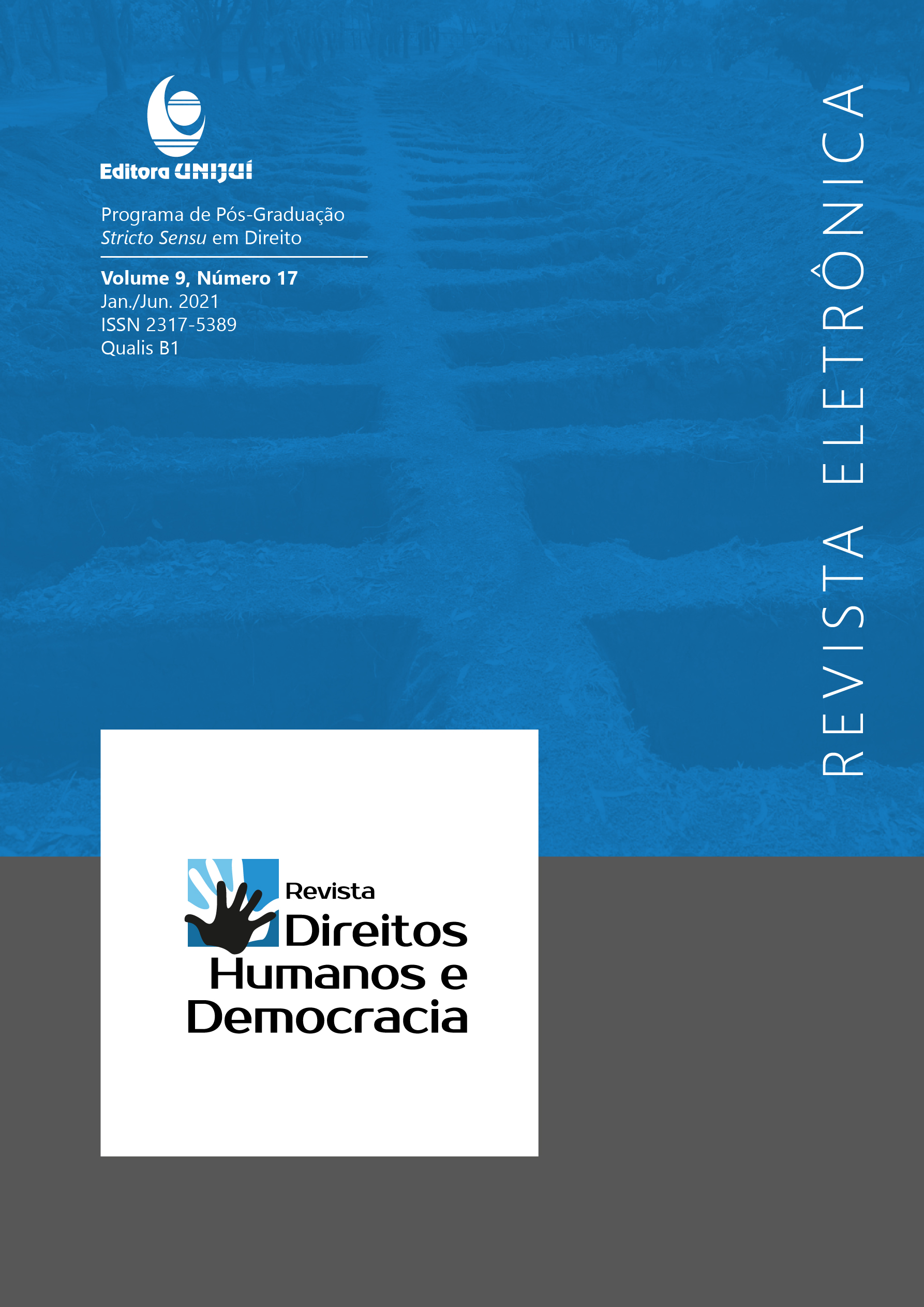CONVENTIONALITY CONTROL ON LABOR REFORM (LAW 13.467 / 2017) UNDER THE ANALYSIS OF THE INTER-AMERICAN COURT OF HUMAN RIGHTS JURISPRUDENCE ON ACCESS TO JUSTICE)
CONVENTIONALITY CONTROL ON LABOR REFORM (LAW 13.467/2017) UNDER THE ANALYSIS OF THE INTER-AMERICAN COURT OF HUMAN RIGHTS JURISPRUDENCE ON ACCESS TO JUSTICE)
DOI:
https://doi.org/10.21527/2317-5389.2021.17.10718Keywords:
Labor Reform, Conventional Control, Right of Access to Justice, Human Rights.Abstract
This current work focuses on the analyze the validity of the legislative changes brought by Law 13.467/2017, called “Labor Reform”, under the sieve of the American Convention on Human Rights (ACHR, 1969) and the international normative provision on the right of access to justice , weighing up the authentic interpretation brought by the evolutionary jurisprudence and consolidated by the Inter-American Court of Human Rights (CorteIDH), advisory and contentious body of the regional protection system created by the Organization of American States (OAS), the Constitution of the Federative Republic of Brazil and the new parameters for granting free justice, attorneys' fees, costs and other procedural expenses, in order to subsidize the application of judicial control of conventionality, as an instrument of double material vertical compatibility, in view of the state obligations to adopt internal human rights. The impacts of legislative changes in guaranteeing unfeasible labor jurisdiction will be examined, through comparison with the precedents of the IACHR and the possibility of recognizing the unconventionality of the devices that confront or restrict access to justice. Through bibliographic and jurisprudential research, based on the deductive method, we seek to trace the dialogue between Labor Rights and Procedural Labor, Constitutional Law and International Human Rights Law, above all, for the purposes of applying conventionality control over domestic law.
Downloads
Published
How to Cite
Issue
Section
License
By publishing in the Revista Direitos Humanos e Democracia, authors agree to the following terms:
Articles are licensed under the Creative Commons Atribuição 4.0 Internacional (CC BY 4.0), which allows:
Share — copy and redistribute the material in any medium or format;
Adapt — remix, transform, and build upon the material for any purpose, including commercial use.
These permissions are irrevocable, provided the following terms are respected:
Attribution — authors must be properly credited, with a link to the license and indication of any modifications made;
No additional restrictions — no legal or technological measures may be applied that restrict the use permitted by the license.
Notices:
The license does not apply to elements in the public domain or covered by legal exceptions.
The license does not grant all rights required for specific uses (e.g., image rights, privacy, or moral rights).
The journal is not responsible for opinions expressed in the articles, which remain the sole responsibility of the authors. The Editor, with the support of the Editorial Committee, reserves the right to suggest or request modifications when necessary.
Only original scientific articles presenting research results of interest, not previously published or simultaneously submitted to another journal with the same purpose, will be accepted.
References to trademarks or specific products are intended solely for identification purposes and do not imply any promotional endorsement by the authors or the journal.
License Agreement: Authors retain copyright over their articles and grant the Revista Direitos Humanos e Democracia the right of first publication.













